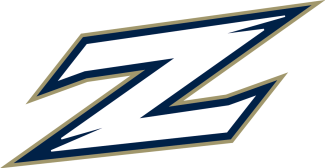The Big East meanwhile loses its top program, but still has two NCAA tournament at-large selections from last year in Georgetown and Denver. Marquette, Villanova, Butler also remain with Old Dominion moving in from the Atlantic Sun Conference.
“Going down to six teams makes it challenging with what to do out of conference,” said Georgetown head coach Ricky Fried. “That’s one of the biggest challenges with conference realignment is finding new opponents.”
Finding opponents is easier for Georgetown than Denver because of the Hoyas’ location in the middle of the East Coast. Denver head coach Liza Kelly said it will be hard for the Pioneers to schedule the maximum of 17 games. Until this week, she still had been hoping to play Florida as a non-conference opponent.
“I’m sad that we’re getting smaller,” Kelly said. “I liked the competitiveness. I also liked the ease of scheduling. That’s something that’s always been a challenge living out west is getting home games. I was definitely disappointed. We have a great six teams in the Big East, but I was sad some of those teams left.”
Denver slid into the Big East two years ago after playing in the Mountain Pacific Sports Federation, and aside from some long road trips, it’s been a good fit.
“We knew the MPSF was going to fold,” Kelly said. “We knew the Pac-12 did not want to take affiliate members. I did not want to be stuck without being able to compete for an AQ. Internally, we talked about that it made sense to go to the Big East because that’s where the boys are. They seemed excited about it. That process moved really quickly. When they started talking about separating was when [East Carolina] was going to be added too. That’s when it seemed to get really big. Some of the core Big East teams maybe weren’t happy seeing affiliate members win. They need us as much as we need them right now.”
With fewer guaranteed games, Denver is scrambling to fill out its schedule with suitable replacements after conference realignment.
“That’s always been our challenge,” Kelly said. “Whether you’re in the MPSF or Big East or any conference, every conference has the top teams that carry their RPI and the bottom teams that tend to hurt it. It’s not just replacing Florida, it’s making sure whoever you add, it’s not just dipping down too low to take away from a good RPI.”
Georgetown is lessening the loss of Florida from its schedule by adding Boston College. Fried admits it's guesswork gauging how good opponents will be, but looks at what each team offers in several areas.
“You have the RPI piece, the competitive piece, you have the budget piece,” Fried said. “Balancing those is how we managed it. Geographically where we are helped us pick up some other teams.”
Taking away the top team in the Big East may hurt the conference RPI some, but the conference has all that Georgetown is looking for.
“Back in the day, it was awesome,” Fried said. “You had natural rivalries. That’s changed a bit because of the restructuring. Having the ability to gain the automatic is always going to be an important part of what happens. We increased our chances with Florida not in the conference because they’d beaten everybody the last four years. That will only make us a little hungrier and add a little extra incentive.”


























































